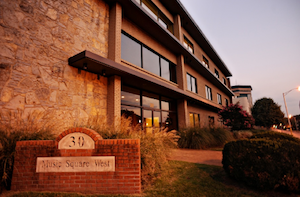
 Grassroots organization SaveStudioA has released an independent report on the condition of RCA Victor Studio A. The report was created with information from public tax records, satellite images, public photo, records of recent upgrades and repairs, conversations with current and past tenants, and reports provided by Bravo Development to news media.
Grassroots organization SaveStudioA has released an independent report on the condition of RCA Victor Studio A. The report was created with information from public tax records, satellite images, public photo, records of recent upgrades and repairs, conversations with current and past tenants, and reports provided by Bravo Development to news media.
The four-page report was compiled by construction management firm Building Trust, Inc., and quotes the estimated cost of updating or “saving” the 50-year-old building at less than $375,000. SaveStudioA says the findings stand in contrast to reports released by Bravo Development’s Tim Reynolds. The Bravo Development set of documents stated that saving RCA Studio A was ‘no longer economically viable,’ citing that the property does not meet building codes, is structurally unsound, has electrical and HVAC problems, water damage, and does not meet requirements for the Americans with Disabilities Act.
“From the time I purchased this building at 30 Music Sq. W., I have been extremely candid about my intentions to fully assess its condition before making any decisions,” said Reynolds in a statement at the time. “I engaged structural, electrical and mechanical engineers to oversee that process and they came back with reports that detailed the extremely poor condition of both the 20,000-square-foot building and the 5,000-square-foot studio. I released those reports to the public several weeks ago so they could understand the situation better. It is based on these reports that I must make my decisions about this building moving forward.”
Songwriter, producer and founder of Save Studio A Trey Bruce disagrees. “If Mr. Reynolds’ claims about Studio A are true, we urge him to welcome the public and news media to visit the building and photograph the ‘catastrophic conditions’ he has described, if they actually exist. Instead, he is trying to keep us quiet with Cease and Desist notices. Our community wants to know why the headlines don’t match the facts.”
Sharon House, a tenant of 30 Music Square West, likened the situation to one the Ryman Auditorium faced in the 1970s, when it was nearly demolished due to its reported state of disrepair. “If anyone threatened the Ryman today, there would be a riot in Nashville,” said House. “Studio A’s music history runs just as deep. We can’t call ourselves Music City if we’re willing to turn our backs on the institutions that have earned us that name. We have to step up as a unified voice and protect the legacy of American music from extinction.”
“This is a Ryman moment,” echoed Bruce. “Let’s get it right.”
The RCA Studio A property was recently named to the Nashville Nine, an annual list of endangered historic properties, which was released by Historic Nashville, Inc. on Sept. 23, 2014.
For more information on SaveStudioA, visit savestudioa.com.

Category: Featured
About the Author
Jessica Nicholson serves as the Managing Editor for MusicRow magazine. Her previous music journalism experience includes work with Country Weekly magazine and Contemporary Christian Music (CCM) magazine. She holds a BBA degree in Music Business and Marketing from Belmont University. She welcomes your feedback at jnicholson@musicrow.com.View Author Profile


